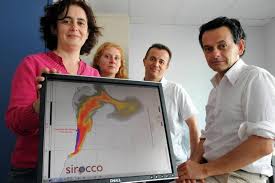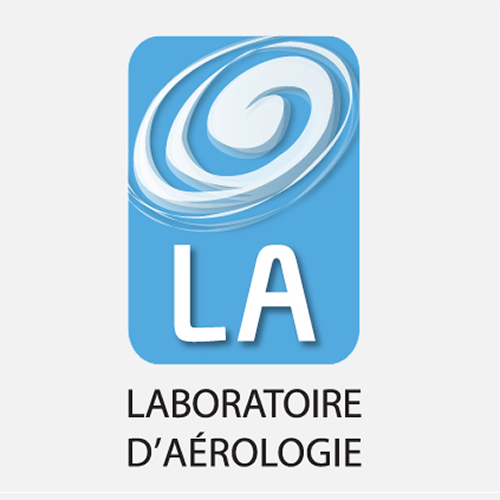Monitoring Côtier – Pollution – Fukushima
Context
Three days after the Fukushima nuclear power plant accident, the International Atomic Energy Agency (IAEA) got in touch with the SIROCCO group to obtain information about the fate of radionuclides released by the power plant in the Japanese coastal waters. A 3D configuration of the SYMPHONIE model (Marsaleix et al., 2008, 2009) was rapidly implemented over the region. The numerical domain was built with two main concerns about the mesh size. The main idea was the necessity of high resolution near the power plant to represent at best the punctual release of radionuclides and then to describe correctly the alongshore dilution. Meanwhile this low resolution offered better opportunities of validation. Besides, for the sake of simplicity and rapidity, it was decided to choose a grid allowing to be directly embedded in the MERCATOR fields and then to get a mesh size at the lateral boundaries smaller but comparable to the MERCATOR one. These two constraints led us to choose a curvilinear grid with a grid mesh of 600 m at the power plant increasing up to 5 km at the boundaries.
Utilisation
Boundary conditions

Products used
Global Model at 1/4° and 1/12° in 2012 and 2013 (Temperature, Salinity, currents direction and intensity, Sea Surface Height SSH).

